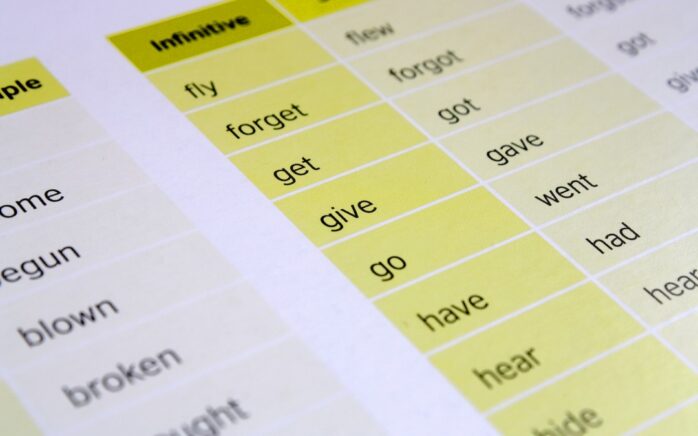Focusing on vocabulary is a good way to learn and get better at many parts of language and reading ability. This includes helping with understanding (phonics and phonemic awareness), recognizing, and fluency.
Reading comprehension depends heavily on one’s vocabulary because of the crucial role vocabulary plays in the reading process. Children pick up the meanings of the vast majority of words through unstructured experiences with spoken and written language during their daily lives. In this article, we have discussed ways to memorize vocabulary 10 times faster.
Ways to memorize vocabulary 10 times faster
In English learning, there are multiple techniques and rules to have a strong grip on vocabulary, but these 7 can help you memorize better and more rapidly than anything else. For more guidance, you can go to Richardharrigtonblog.

1. Look up new terms in the dictionary
If you keep hearing a word but aren’t sure what it means, you should make an effort to check it up as soon as you can. This is a simple concept, and even this is made much simpler in this day and age thanks to the existence of Google Translate.
However, because a great number of terms do not translate the same from one language to another, some individuals believe that using Google Translate and dual-language dictionaries might result in a great deal of confusion.
In addition, if you want to make learning a language to the next level, be sure to provide enough room for mind maps that contain connected terms, synonyms, or antonyms. If you want to get the most out of your learning experience, try not to translate the word into your mother tongue, but rather, explain and describe it in the language that you are attempting to learn. This will help you retain more of the information.
Here are some pointers to help you make learning new phrases a daily routine:
- Study for 10 to 20 minutes every day. Establish an achievable daily goal, and work diligently to achieve it.
- Get a vocabulary notebook; hold on to everything you’ve discovered in one location.
- Try to write your examples, at least three to five of them.
2. Keeping a notebook nearby is a good idea
When you continue to be exposed to English, you will continue to come across new words that are beyond your comprehension. Every time you become aware of a new term, there is an excellent chance.
Invest in a journal that is solely devoted to the growth of your English vocabulary, and use it to record each new term that captures your attention. This is an efficient approach to studying since each of the words in your notebook is associated with its memory, providing you with a more substantial motivation to remember them.
Writing things down takes more in-depth processing, which is one of the reasons why it is so powerful. However, this is not the end of the story.
When you take thorough notes, you frequently find that you don’t even need to look back to them in the future since you’ve already processed the information by the time you’ve written it down.

3. Read more and more
When you have a firm grip on the fundamentals of the English language, you can begin to acquire new vocabulary in the same way that children do. You can do this by building your educated guesses about an unknown word on the words that are used around it that you are familiar with.
4. Make the space friendly to learning
Studying in a foreign country allows you to immerse yourself in the target language, allowing you to pick it up at a far faster rate. However, you may slowly expand the number of terms you know without having to go overseas if you create an inspirational and study-friendly environment wherever you are.

5. Gain wisdom through the study of actual events
Speaking of context, movies, television shows, novels, podcasts, and songs are not only excellent sources for the most popular words, but they may also assist you in learning vocabulary because the words are always related to a specific scene, or person, or (actual) event.
Therefore, make an effort to learn the meaning of the phrases by reading books or watching movies in their native language (preferably with subtitles). If you come across a term or sentence that you aren’t familiar with, write it down, check it up, and begin to commit it to memory as soon as possible.
6. Create fun mnemonics
Mnemonic strategies are a collection of memory-enhancing strategies that help you commit knowledge to long-term storage and recall it with greater ease. Mnemonics are a method for remembering knowledge by associating it in one’s mind with important concepts through the use of visual cues, catchy phrases, rhymes, or even tactile representations of the information.
It evolves into an idea that is associated with a picture, a joke, a song, or some other element in addition to being merely a word borrowed from a different language.

7. Attention leads to advancement, so better focus
There are multiple things that can distract us throughout the day, and these things can make it difficult for us to learn with full concentration. Whenever you want to devote some time to learn your target language or words, you should do all in your power to eliminate as many distractions as you possibly can.
You will remember far more from the learning session if you are focused and engaged in it, and if you pay attention to what it is that you are learning, as opposed to when you are continuously diverted from what you are learning.
Conclusion:
It is well recognized that the English language possesses one of the greatest vocabularies in all of human history. Because there are no hard and fast rules to follow in vocabulary, learning it is more difficult than learning grammar. However, there are a few strategies that can be utilized to enhance and broaden one’s vocabulary, that we have discussed above in our article.
The post How to Memorize Vocabulary 10 Times Faster appeared first on FotoLog.
from FotoLog https://ift.tt/QPVGiDE
via IFTTT



0 Comments